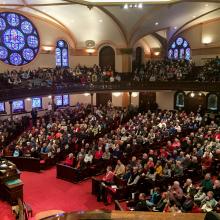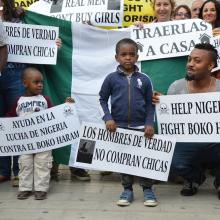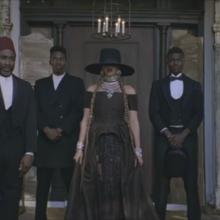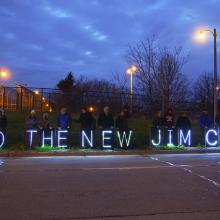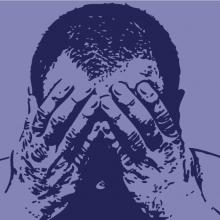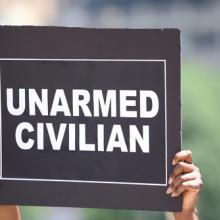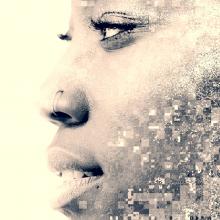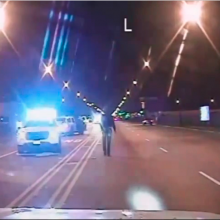racial justice
TRAVELING AROUND the country this winter has given me a tremendous opportunity to promote multiracial truth-telling in many local communities as well as to foster multiracial commitments to action in service of racial justice.
During the first two weeks of the “town hall” tour around my new book, America’s Original Sin: Racism, White Privilege, and the Bridge to a New America, we engaged an audience of tremendous diversity—multiracial, intergenerational, interfaith, secular, and intersectional. The audience and panelists at these forums have been baby boomers, Gen Xers, and millennials, and again and again we’re seeing new insights and directions as a wide variety of people and perspectives are brought into the dialogue.
In Baltimore, leaders who were in the streets with their congregants following the death of Freddie Gray, such as Revs. Heber Brown III and Brad Braxton, talked about the lessons they learned from the protests and how those lessons must be applied across the country in the days to come.
In New York, Heather McGhee, president of the public policy organization Demos, said that successfully navigating our country into the new demographic reality—in a way that removes both privilege and punishment based on skin color—could be the first opportunity to truly realize our “American exceptionalism.” I often speak against the notion of American exceptionalism, but I wholeheartedly agree with McGhee’s assessment.

Image via momente/Shutterstock.com
Self-professed best friends, Anthony and Dustin have two very different energies. Anthony is compact, and speaks with vivid and pointed images that cut through the fog of misconception. His gaze is simultaneously direct and yet deeply reflective. Dustin emanates a good ol' southern boy vibe: easy grin, easy mannerisms, each movement relaxed and deliberate.
And then there is the one glaring difference between them: Anthony is black. Dustin is white.
I don’t know who posted it. But on Feb. 2, as I customarily do, I checked into Facebook to see what my friends were talking about. A post popped up about 86 children slaughtered in Dalori, Nigeria, by Boko Haram, the terrorist group that kidnapped upwards of 300 girls on April 14, 2014. The children, the post dated Jan. 31 noted, were burned alive.
I reflexively shuttered. How was is possible that is was Feb. 2 and I had heard NOTHING of children burned alive, not on any news network?
Rev. Michael Piazza is well known for developing Dallas’s Cathedral of Hope, the first predominantly LGBT church in the country. The Cathedral of Hope grew from a store-front church into a megachurch with a message of inclusivity, love, and justice. I am taking a class taught by Rev. Piazza this semester, and with us he recently shared a compelling insight. Rev. Piazza believes that America will have another Great Awakening.
I think that the time for that awakening could be right now, and Beyoncé’s documentary does a stellar job of showing us why.
The white power structures were offended, so they fought back. Fox News interviewed Rudy Giuliani about the halftime show. The interview is a textbook case in America’s 400-year history of silencing black voices. The segment shows four white people critiquing Beyoncé’s performance and the black lives matter movement. They lectured Beyoncé on her performance. One commentator said, “In the end we find out that Beyoncé dressed up in a tribute to the Black Panthers, (the dancers) went to a Malcom X formation, and the song, the lyrics, which I couldn’t make out a syllable, were basically telling cops to stop shooting blacks!”
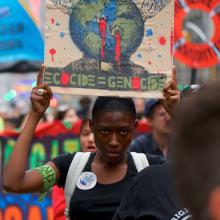
People's Climate Rally, Sept. 14, 2014. by Alan Greig/ Flickr.com
Black History Month is a time to reflect on the contributions African Americans have made to this country. We are right to pause and look back on those who have fought for justice and equal rights. But we mustn’t stop there. We also need to look forward and act to address one of the deadliest legacies of racial inequality: toxic pollution that is harming our children and poisoning our environment.
The crisis in Flint, Mich., has sparked outrage and condemnation, hitting covers and front pages of national media outlets, and pointing to yet another example of our country's original sin of systemic racism. Photographer Heather Wilson shares with us this image from Flint: the old water pipes — blamed for high levels of lead in the city's water, leading to neurological damage in infants and children — v. the new pipes in the background.

Sign at UAW local asking for donations for Flint, Jan. 27. Barbara Kalbfleisch / Shutterstock.com
I recoiled harshly when I heard suggested that white supremacy was at the core of the issues Flint had been dealing with for decades and continues to struggle with now. I knew what white supremacy was. Lynching, KKK, police dogs, etc. I didn’t think there was any way that my good intentions to help Flint had any white supremacist motivations. But that's where I, and to a large degree most white Christians, are wrong.
Our lawyers have made a strong case this week that the voter ID component of this legislation places an unnecessary and undue burden on voters — especially poor and African-American voters. We will ultimately win this fight in the courts. But this case is about much more than defeating voter ID laws. It is about a central question of 21st-century American politics: is a multiethnic democracy possible?
People of color in the United States, particularly young black men, are burdened with a presumption of guilt and dangerousness. Some version of what happened to me has been unfairly experienced by hundreds of thousands of black and brown people throughout this country. As a consequence of our nation’s historical failure to address the legacy of racial inequality, the presumption of guilt and the racial narrative that created it have significantly shaped every institution in American society, especially our criminal justice system.
Often I wonder, what is it about me that puts me at the table? I love my x chromosomes and femininity; being a woman is an amazing thing! But in these circles, they seem to come with a cost. No, I’ve not been barred from sitting at the leadership table, but am I only here because I don’t have two other things I longed for – a husband/partner to share life with and children to love and care for and call my own.
But evangelical leaders are stepping forward. They are voicing support for the structural and systemic protection of the image of God in black people. And as in the days of MLK and Mandela, it is essential that allies understand the movement and its operating principles.
The Black Lives Matter movement is the most recent phase of the 500-year global struggle for black freedom. It is not random. It is not disorganized.
“When I see you, I don’t see color,” is something white women have said to me for decades. When heard from white women I see as sisters in Christ, these words erase me. For years I tried responding. I might say, “I get that you are refusing to attribute to me the bad things you have heard about people of color,” to which might come the response: “Oh no! I was raised to accept everyone!” Or I might say, “I know you mean that as a compliment,” and she might say, “I really mean it; I don’t see your color!”
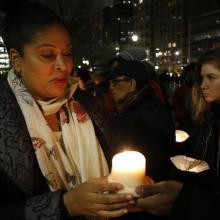
Several hundred activists gathered in Union Square in New York City for a candlelight vigil in memory of Sandra Bland on Dec. 30. a katz / Shutterstock.com
To put this in a religious context: overcoming the divisions of race has been central to the church since its beginning, and the dynamic diversity of the body of Christ is one of the most powerful forces in the global church. Our Christian faith stands fundamentally opposed to racism in all its forms, which contradict the good news of the gospel. The ultimate answer to the question of race is our identity as children of God, which we so easily forget applies to all of us. And the political and economic problems of race are ultimately rooted in a theological problem. The churches have too often “baptized” us into our racial divisions, instead of understanding how our authentic baptism unites us above and beyond our racial identities.
Do we believe what we say about the unity of “the body of Christ” or not?
State officials in New York are reforming their policy of keeping people convicted of non-violent offenses in solitary confinement. Some hail the decision; others, including corrections officers, object, saying that solitary confinement is necessary to maintain control, and they say that keeping an individual in solitary confinement is not inhumane.
Tell that, though, to innocent people in prison, wrongly convicted, who find themselves in solitary confinement without hope of ever getting out.
Influential faith leaders mourn following the decision not to indict the officer who killed Tamir Rice.
"Twelve seconds. One-fifth of a minute. Produces a lifetime of pain for a family and now eternal shame for America.”
— Rev. Dr. William Barber II, Forward Together, founder of the Moral Monday Movement, North Carolina
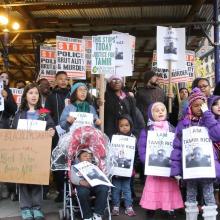
New York City march on the anniversary of Tamir Rice's death. a katz / Shutterstock.com
Black people’s humanity is still at question in the stories so many of us hear and tell in America. For many with a badge, a gun, and the legal shield of the state, black men and women — even black children — are not humans. Instead black bodies are threats and targets for rage, fear, and racially justified execution. When an officer of the law exterminates on the spot, we must ask ourselves what he was shooting. In his mind, Tamir could not have been a boy. He could not have been human. What did he see? And who bewitched him (and us) to “see things” when we are entirely sober?

Image via Vladimir Wrangel / Shutterstock.com
Black Friday, the day after Thanksgiving known for shopping, has become a rallying point for #BlackLivesMatter activists, not just retailers looking for a holidays bump in sales.
After the non-indictment decision in Ferguson, Rahiel Tesfamariam of Urban Cusp created the #NotOneDime boycott campaign, that “calls for a cease on all non-essential shopping from Thanksgiving through Cyber Monday and reclaiming Black Friday as a national day of action and service,” according to the campaign’s website.
When Time Magazine announced that Black Friday sales fell $1 billion this year, many on Twitter called it a victory for #NotOneDime.
An 80s song told us “video killed the radio star.” The music was catchy and referred to the varied attitudes we all had about technology. What is this? What would we do now? Fast-forward 35 years, and videos are the very technology for which we are so thankful.
Video changes everything.
When the Chicago Police Department released the dash-cam video of 17-year-old Laquan McDonald being shot 16 times by one of their own, the city braced for disruption. When we learned of the $5 million settlement to the McDonald family that stipulated the video remain confidential, the city braced for disruption. When residents discovered that footage from a nearby security camera had been deleted by Chicago police, the city braced for disruption. Mayor Emanuel and his team had seen the video, and were afraid of the public reaction.
